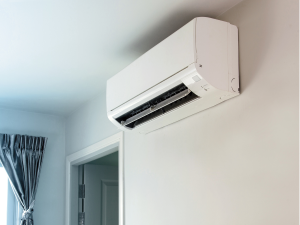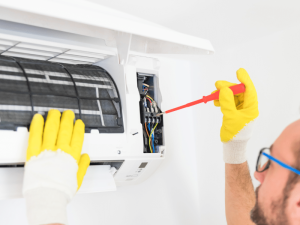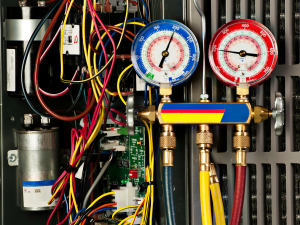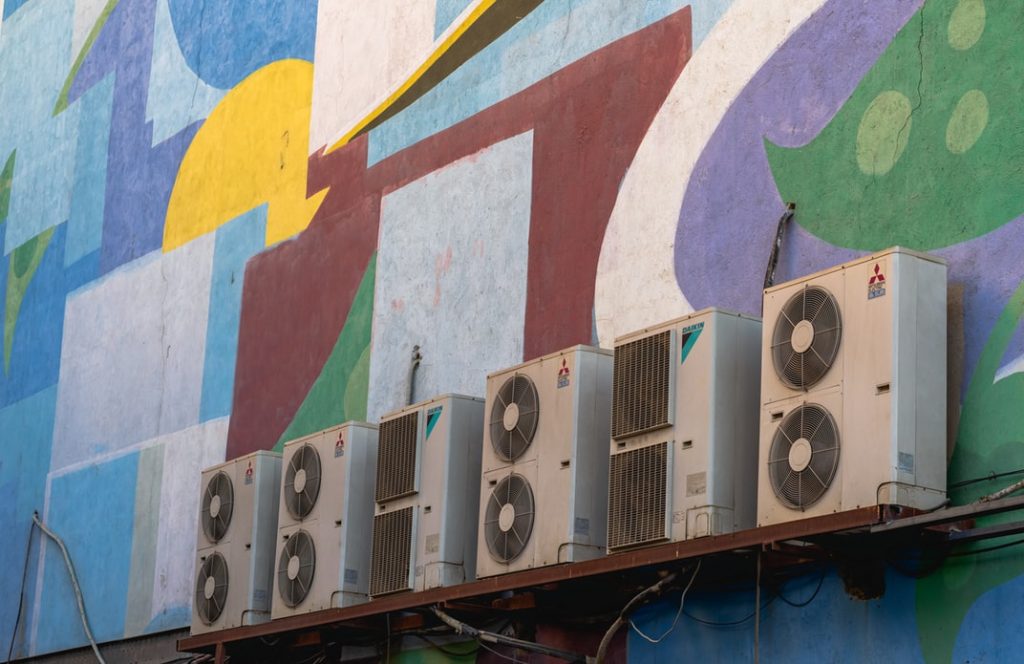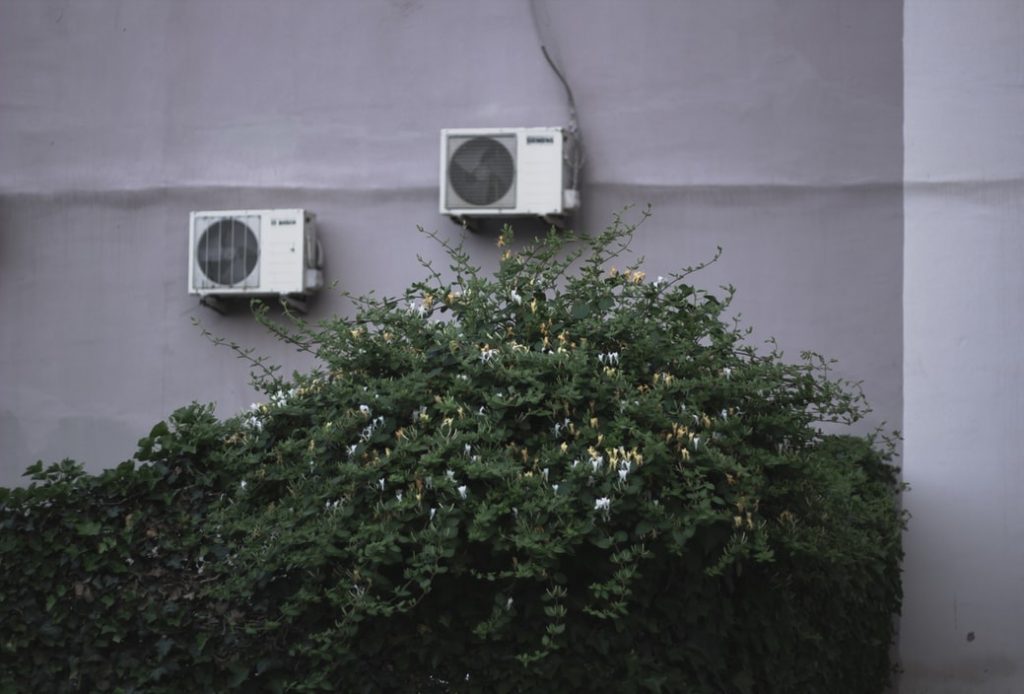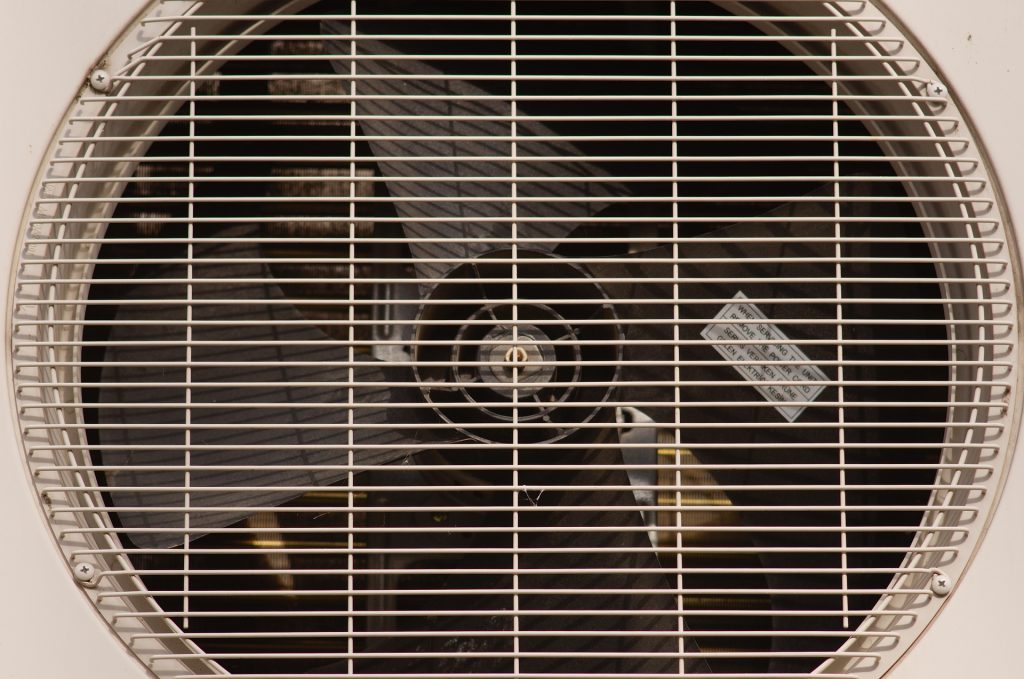How much power does an air conditioner use? Knowing the answer to this question can help you in a number of ways. For example, you might be looking to predict costs before installing a new unit. Whatever the case, this guide will give you an idea of the energy usage associated with various types of air conditioners.
How Much Power Does An Air Conditioner Use? Rough Numbers
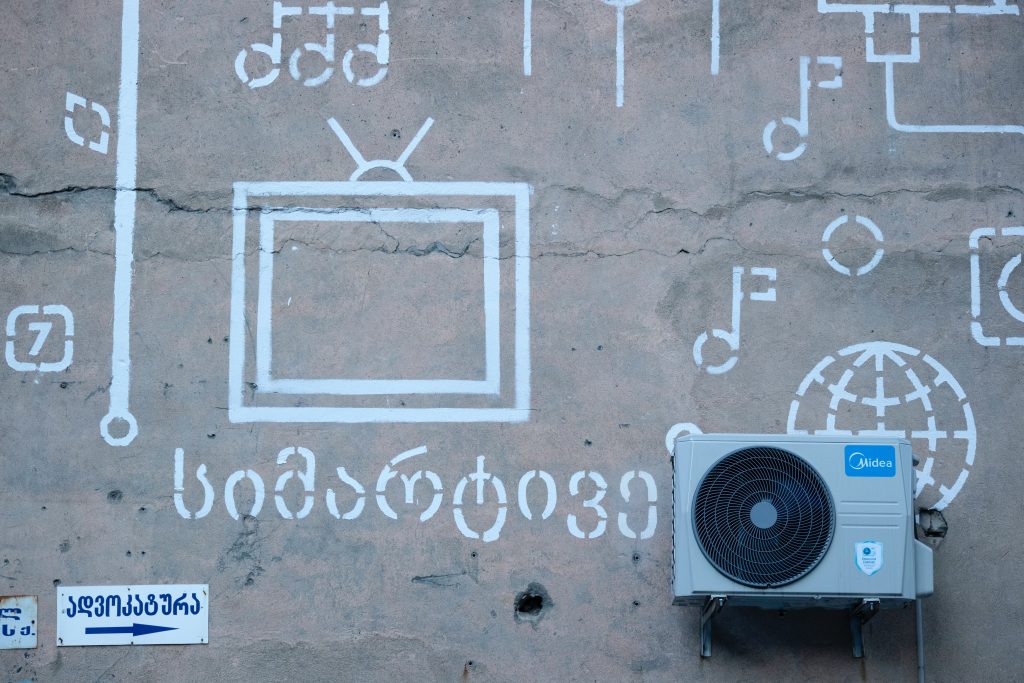
There are many variables that can impact your air conditioner’s energy efficiency. As such, calculations for your home may differ from estimates you’ll find online. While we’ll explore those factors in the next section, let’s first run through some general numbers. Predictably, these vary depending on what type of air conditioner you have.
How Much Power Does A Central Air Conditioner Use?
The average central air conditioner uses between 3000 and 3500 watts per hour during the warm month. Air conditioners in Phoenix and other very warm climates can run at that level for much of the year. If you’re running your central air conditioner on ‘fan only’ mode, however, energy usage drops to about 750 watts per hour.
How Much Electricity Does A Portable Air Conditioner Use?
Mid-sized portable air conditioners use an average of 2900 watts per hour. Particularly large units can exceed the electricity usage of even central air conditioners, expending about 4100 watts per hour. Check out this post to learn more about air conditioner sizes and how they’re measured. You can also read the guide on “How to use portable ac without window“.
Window Air Conditioner Energy Usage
A medium-sized window air conditioner uses 900 watts per hour. On the smaller side, you’ll find usage of about 500 watts per hour while larger units use 1440 watts. You can check out our article on “Window Unit vs Central Air Conditioner” for more information about window unit power consumption, also check out our guide on window AC insulation installation.
Making Cents Of This Data
Now, unless you’re looking to reduce carbon emissions, your primary concern when it comes to energy usage is probably not the nominal wattage statistics. Rather, you’re likely concerned about dollars and cents. In the state of Arizona, electricity costs an average of 12.8 cents per kilowatt-hour which is stems from the warm climate and poor air quality in Phoenix and other cities in Arizona. With this piece of information, calculating your energy costs is fairly easy. Simply divide your watt per hour estimate by 1000 and then multiply the result by 12.8 cents for every hour your air conditioner actually runs.
That last part is important as air conditioners don’t run consistently for hours on end. Rather, AC cycles on and off as needed. Calculating the usage per hour your air conditioner is set to the ‘on’ position will give you an artificially-high number since most air conditioners run for cycles of 15 minutes as infrequently as twice hourly. All factors considered, Arizona residents spend an average of $400 annually on air conditioning.
It is important to note that these average air conditioner energy consumption and energy costs are specific and therefore can affect the average electric bill in Arizona, for those who have air conditioning, heating or both. The exact numbers will differ depending on where you live. Numbers in states like Arizona, Nevada, and New Mexico are nearly double what people in cooler states pay, according to federal energy statistics.
Factors That Affect Air Conditioner Electricity Usage
Now that we’ve given you a general answer to the question “how much power does an air conditioner use,” let’s explore the more nuanced factors that can raise or lower those numbers.
Your Air Conditioner’s Capacity
Air conditioner capacity is, unsurprisingly, the biggest determinant of energy usage. Experts measure capacity based on British thermal units. Generally, you need about 20 BTUs per square foot, adjusted for your local climate and home’s conditions. The larger your home, the greater the cooling capacity required, and the more energy you’re going to subsequently spend.
Your Air Conditioner’s Efficiency Rating
Of course, not all air conditioners providing the appropriate number of BTUs will operate at the same efficiency. Air conditioners come with what’s known as a Seasonal Energy Efficiency Ratio (SEER) rating. It represents the ratio of cooling output per season divided by the number of watts used per hour. The higher your air conditioner’s SEER rating, the more efficient it will be. Federal regulations require a minimum SEER rating of 13 or 14 depending on your environment but you can find units with ratings as high as 25.
Climate
In regions like Arizona, you’re going to need a more powerful air conditioner than you would in, say, New York. Those additional BTUs will equate to greater energy usage. Another good idea would be to get a PRV to insure ensure safe operation of all plumbing equipment.
Your Maintenance Routine
At American Home Water and Air, we recommend having your air conditioner professionally serviced at least twice annually to keep it running at peak efficiency. In between professional services, however, there’s something very important you need to do on your own: change or clean your filters. You might be surprised at how quickly dirt and debris can clog up your filters and cause airflow issues. If your air conditioner’s filters are reusable, check out this post for some tips on cleaning them monthly. Disposable filters, meanwhile, should be replaced every month.
Temperature Settings
One simple way to improve air conditioner efficiency is by maintaining consistent temperature settings throughout the day. Some manufacturers recommend keeping the unit set to 75 degrees, which is often the default temperature. Setting your air conditioner lower or altering its temperature throughout the day can lead to higher energy usage.
Insulation
A properly-insulated home makes your air conditioner’s job much easier by not allowing cold air to escape. Pay special attention to your insulation if you live in an older home as these tend to be subpar in this department.
How Much Power Does My Air Conditioner Use? Conclusion
While air conditioners are fairly energy-intensive, their exact energy usage depends on several factors. Generally speaking, however, you can expect a central air conditioner to use between 3000 and 3500 watts per hour. Portable units use between 2900 and 4100 watts per hour while window units range between 900 and 1440.
Before purchasing an air conditioner, talk with your local expert to ensure you strike a good balance between convenience and efficiency. Give us at American Home Water and Air a call or fill out our contact form here and check out our FAQ’s to learn more about our services. You can find our HVAC and plumbing services in Sun City, Glendale, Mesa, Scottsdale and other regions of the Phoenix metro area.
Frequently Asked Questions
How much electricity does a 12,000 BTU air conditioner use?
A 12,000 BTU air conditioner uses roughly 900 watts per hour, assuming a minimum SEER rating of 13. You can achieve much more efficient performance with a better rating.
How much does your electric bill go up with an air conditioner?
In Arizona, people spend an average of $400 annually on cooling their homes. Of course, abnormally large properties will require higher capacity air conditioners that are consequentially more expensive.
Do air conditioners use a lot of electricity?
Your air conditioner will likely be the most energy-intensive appliance in your home. That’s especially true in the American southwest, where air conditioners run for much of the year. If energy consumption is your main cause of concern, you can also consider getting a solar powered air conditioner.
How much does it cost to run an air conditioner all day?
The cost depends on your air conditioner’s kilowatt per hour usage. Throughout America, energy costs about 12 cents per kilowatt hour. It’s also important to point out that “running your air conditioner all day” may not mean what you think it does. Air conditioners run at cycles of about 15 minutes as little as twice hourly. A properly-sized unit will be able to do its job within that time, negating the need to run consistently.



